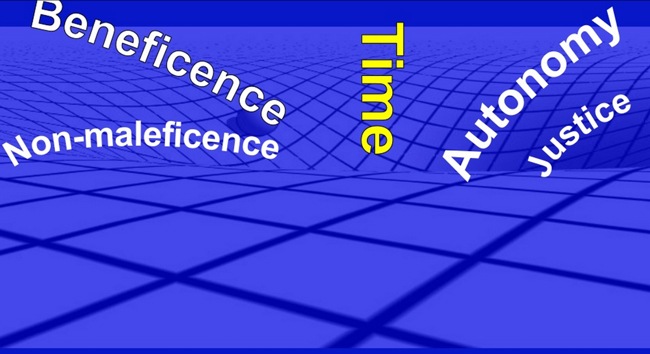
When to stop resuscitation
When to stop resuscitation in probably the biggest question challenging Critical Care and it’s a challenge that many of us face virtually every clinical shift. The main problem is that there is little good data to guide us, leaving us to navigate this situation with few coordinates to plot a path forward. When to stop resuscitation explores this problem and suggests some landmarks we can use to navigate by. It examines the inter-relationship between the pillars of our medical ethics Autonomy, Beneficence, Non-Maleficence and Justice. To better understand the clinical challenges we face, the talk also uses a framework provided by modern physics and the ‘Space Time Continuum’ theorem. Hence the title might more appropriately be – “The will to Live – The courage to die and the space-time continuum”. If the thought of how Einstein’s theorem on ‘General Relativity’ can help us answer the question of, when to stop resuscitation interests you then don’t miss this.
Most resuscitation attempts are unsuccessful — we need to know when to stop.
- The decision to stop CPR should be tailored according to the specifics of the individual case and is based on clinical judgement
- The decision is best made by the Team Leader in consultation with other team members
- Always maintain initial resuscitation efforts until adequate information is available to make the call to discontinue
However, selected patients potentially have good outcomes with prolonged, aggressive resuscitation (see ‘when not to stop’)
KEY DETERMINANTS OF SURVIVAL (CONTINUE…)



